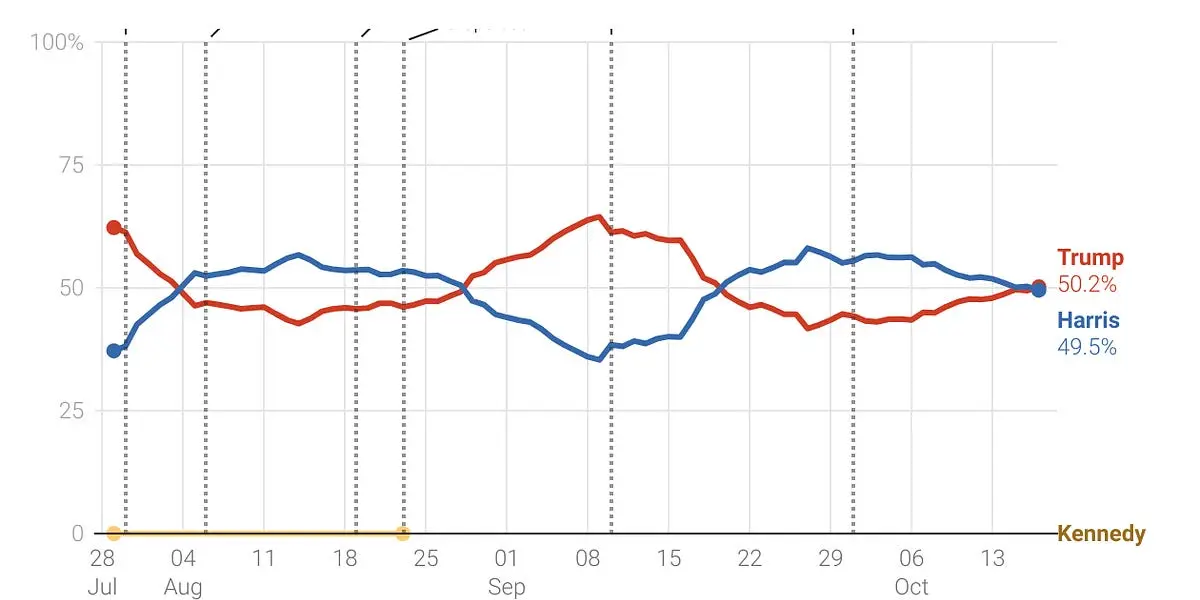Nate Silver’s polling tracker now has Trump slightly favored to win (50.2%) the election. While this shift appears small, it has drawn attention because it pushes Trump just past the halfway mark in forecasts for winning the Electoral College.
Silver explains that while Trump’s rise over recent weeks is significant, and his polling model, is designed to minimize overreactions to new data to provide more accurate long-term predictions (i.e., it’s likely a “real” effect), this doesn’t in any way mean Trump “will” win, and the race remains highly competitive, especially in key states like Michigan, Wisconsin, and Pennsylvania, which are critical to determining the outcome.



Your response shows that you’re still fundamentally misunderstanding how polling models and graphs work. The mirrored lines don’t imply that the exact same people are shifting back and forth between Trump and Harris. Polling aggregates track the broader electorate, not individuals, and as different groups are polled, the graph reflects overall trends in public sentiment. It’s not about a fixed sample of people being tracked throughout the year.
When one candidate rises while the other falls, it doesn’t mean voters are just switching between the two in a perfect one-to-one ratio—it shows that overall support for each candidate is fluctuating as a result of multiple factors, including undecided voters making up their minds, shifts in enthusiasm, and reactions to campaign events. You seem to be imagining this graph as a static sample over time, but it’s capturing a much larger and more fluid electorate. Reducing it to just a few undecided voters misses the entire point of tracking these dynamics across the country.
Claiming that this graph “just shows undecided voters” is a massive oversimplification and shows a lack of understanding about how public opinion tracking works. This isn’t about a small group flipping back and forth; it’s about broader shifts in voter sentiment that polling aggregates are designed to capture.